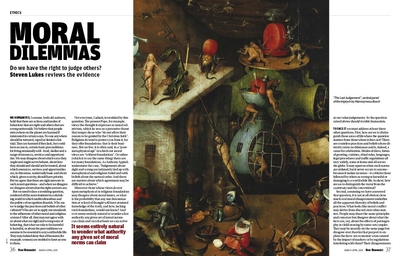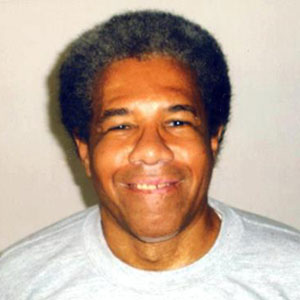 We humanists, I assume, both old and new, hold that there are actions and modes of behaviour that are right and others that are wrong universally. We believe that people everywhere on the planet are harmed if mistreated in certain ways. No one anywhere should be tortured, raped or denied a fair trial. They are harmed if they lack, but could have access to, certain basic preconditions for living minimally well – food, shelter and a range of resources, services and opportunities. We may disagree about which ways they ought and ought not to behave, about how they should and should not be treated, about which resources, services and opportunities are, in this sense, universally basic and about which, given scarcity, should have priority. But we agree that there are right answers to such moral questions – and when we disagree we disagree about what the right answers are.
We humanists, I assume, both old and new, hold that there are actions and modes of behaviour that are right and others that are wrong universally. We believe that people everywhere on the planet are harmed if mistreated in certain ways. No one anywhere should be tortured, raped or denied a fair trial. They are harmed if they lack, but could have access to, certain basic preconditions for living minimally well – food, shelter and a range of resources, services and opportunities. We may disagree about which ways they ought and ought not to behave, about how they should and should not be treated, about which resources, services and opportunities are, in this sense, universally basic and about which, given scarcity, should have priority. But we agree that there are right answers to such moral questions – and when we disagree we disagree about what the right answers are.
But we need to face a troubling question, rendered all the more insistent in a shrinking world in which multiculturalism and the politics of recognition flourish. Who are we to judge the practices and beliefs of other cultures? Who are we to apply our standards to the adherents of other moral and religious systems? After all, they may not agree with us about what are right and wrong ways of behaving, that what we take to be harmful is harmful, or about the preconditions we assume to be essential to any worthwhile life. They may indeed deny that all humans (for example, women) are entitled to have access to them.
Not everyone, I admit, is troubled by this question. The present Pope, for example, views the thought it expresses as moral relativism, which he sees as a pervasive threat that tempts those who “do not allow their reason to be guided by the Christian faith”. Religions do tend to protect you from it, for they offer foundations: that is their business. But we live, it is often said, in a “post-metaphysical age” in which our moral views are “without foundations”. Or rather (which is to say the same thing) there are too many foundations. As Anthony Appiah understates the case, “Judgements about right and wrong are intimately tied up with metaphysical and religious belief and with beliefs about the natural order. And these are matters about which agreement may be difficult to achieve.”
Moreover those whose views do rest upon metaphysical or religious foundations may disagree about moral issues, so what is the probability that any one denomination or school of thought will have attained knowledge of the truth, and how, lacking such foundations, would one know? And so it seems entirely natural to wonder what authority any given set of moral norms can claim and on what basis we can arrive at our value judgements. So the question raised above should trouble humanists.
To face it we must address at least three other questions. First, how are we to distinguish those areas of life where the question matters from those where it does not? There are countless practices and beliefs whose diversity raises no dilemmas and is, indeed, a cause for celebration. Modes of dress, forms of greeting, cuisines, ritual rules, languages, legal procedures and traffic regulations all vary widely, some at home and all across the globe. It may upset us when such norms are violated, but it never occurs to anyone – because it makes no sense – to criticise those followed by others as wrong or harmful or damaging to a worthwhile life. In short, how are we to distinguish the moral from the customary and the conventional?
Second, assuming we have answered that question, it is not at all obvious how much real moral disagreement underlies all the apparent diversity of beliefs and practices. What looks like moral conflict may derive from discord over other matters. People may share the same principles and concerns but disagree about what the facts are, say, about the effects of pornography or child-rearing by same-sex couples. They may be morally on the same page but disagree over theories that purport to explain the facts: are economic woes caused by the impact of markets or by regulations interfering with them? Their disagreements may be over policy differences: how best to promote family values or the welfare of the elderly, over which they agree. Or they may live in conditions forcing moral choices on them that others with the same moral views do not face. Is child labour to be condemned in all circumstances? Did the Inuit, living a hard migratory life, not respect their elders when they walled them up to die? In short, how are we to know when the diversity we see amounts to genuine moral disagreement?
And third, assuming we have answered both of these questions satisfactorily, where are we to locate these moral disagreements? Do they derive from “cultures” and “religions”? But are these really integrated unities rather than internally contested, historically developing and porous to outside influences? Religious texts, even when thought to be divinely inspired, are always subject to interpretation and reinterpretation. And isn’t Mary Midgley right to suggest that cultures differ but differ in the way that climatic regions and ecosystems do? Are we – some, admittedly far more than others – not mongrel selves increasingly living hybrid lives? The idea that “cultures” are unified wholes obscures the manifold ways in which people relate to what others and sometimes they themselves call their “cultures”. In more repressive regions of the world, it is the powerful who have the strongest interest in maintaining this misleading idea. It would be best to speak of “culture” adjectivally and adverbially, the better to perceive how people actually interpret the norms and values they live by. In short, to arrive at an understanding of moral disagreement we need to recognise its prevalence both within and across religious and cultural boundaries.
I will assume that, after answering these three sub-questions, the troubling question still survives to trouble us. People have serious moral disagreements about how to treat others, about the scope of moral concern, about what constitutes harm, about what makes life worthwhile. How, then, is the humanist to resist the moral relativist who concludes that the only appropriate response is moral abstinence: that is, refraining from judging others from one’s own perspective? Notice that this response is not tolerance. The tolerant person judges others adversely but refrains from interfering with them; the relativist denies that they can be judged.
Let us make the troubling question more concrete with an example. Suppose that two people—a human rights activist and a wife-beating husband—are in disagreement over whether wife-beating is abusive or a necessary defence of marriage, The moral relativist has only two ways of judging this situation. One is to say that the husband’s view is the right one, since what is right and wrong is decided by the prevailing views of the local culture (this is the cultural relativist view). Alternatively, given that each appeals to a different set of norms and values, the relativist will declare the disagreement to be only apparent, since each is right relative to each one’s norms and values.
But the humanist recognises that there is a real conflict here. There are, I think, two ways of dealing with it, which we can call “Kantian” and “Aristotelian” respectively. The Kantian way (advocated in our time by Jürgen Habermas and Thomas Scanlon) is to ask what can be justified to all those affected by a given practice. Pursuing this idea requires us to recognise that people, not least those subject to abusive practices, will also be subject to powerful constraints that compel them to accept and even endorse them as justified while those constraints last. But, as studies of footbinding in China and female genital mutilation in Africa show, once the constraints are overcome by collective action, the acceptance and endorsement can disappear overnight. The Aristotelian way (advocated in our time by Martha Nussbaum and Amartya Sen) starts from the idea that there are central human capabilities – abilities to function in a truly human way – recognised in very different cultural traditions and independent of any particular religious or metaphysical view. These dictate “core human entitlements that should be respected by the governments of all nations, as a bare minimum of what respect for human dignity requires”.
Nussbaum has proposed a list of these entitlements, suggesting that anyone anywhere, given the right educational and material support, is capable of flourishing, while each is free to determine his or her own course. She sees this as a way of defending human rights that is freed of the claim, sometimes made, that talk of human rights is a form of Western cultural imperialism.
These are, I believe, currently the best available answers to the troubling question that besets, or should beset, humanists.
Steven Lukes' most recent book is Moral Relativism (Picador)
This piece is from the March/April 2009 issue of New Humanist. subscribe

